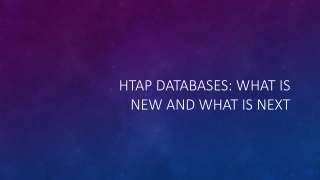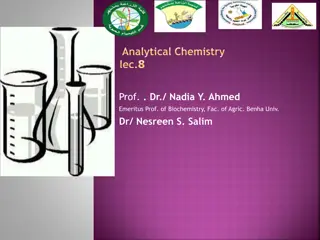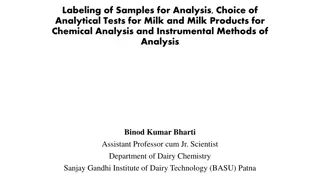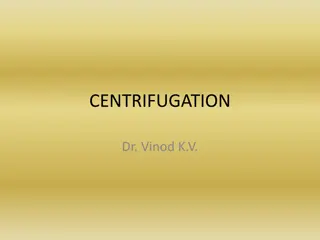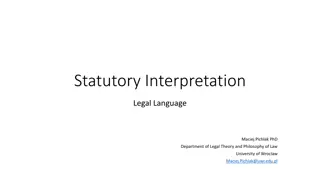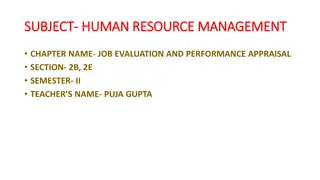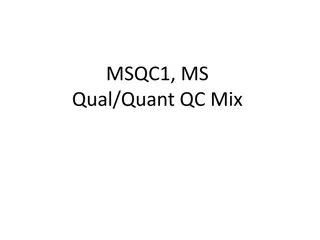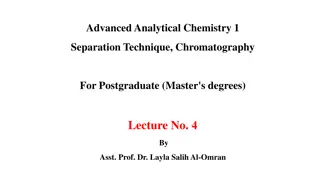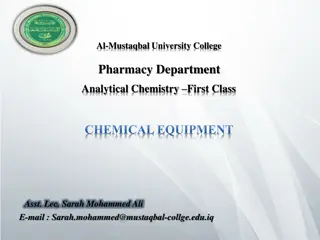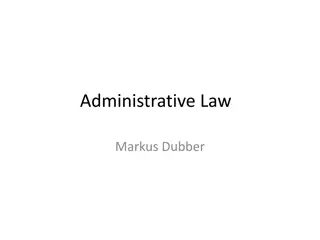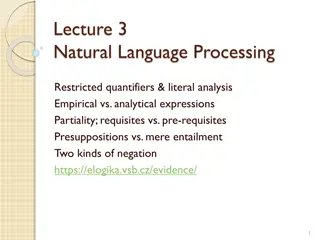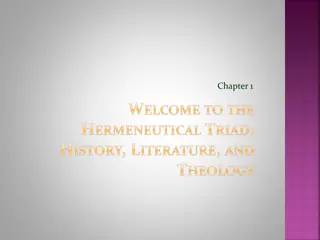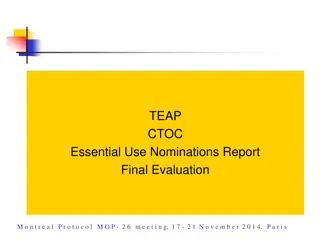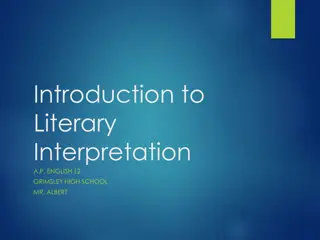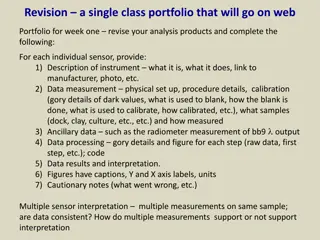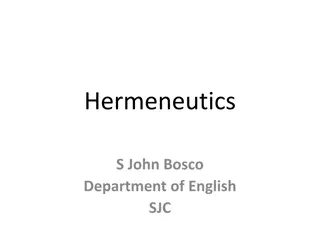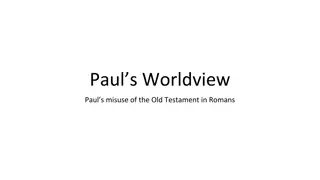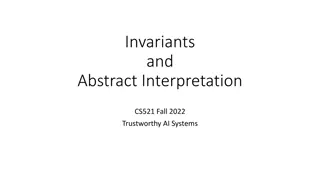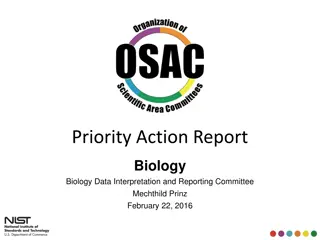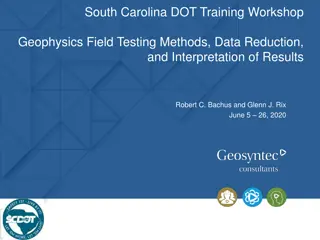Revolutionizing Data Management with HTAP Databases
Organizations handle a vast amount of data daily, necessitating efficient systems like Hybrid Transactional Analytical Processing (HTAP). This advanced system streamlines online transaction processing (OLTP) and analytical processing (OLAP), enabling real-time insights and prompt actions. HTAP datab
2 views • 22 slides
Population and Housing Censuses Directorate - Midterm Review Mission Summary
The Population and Housing Censuses Directorate (PHCD) is actively involved in implementing various censuses, updating geographical databases, and conducting analytical studies. They are preparing for the next census in 2027 by learning from international experiences and modern methodologies. The di
0 views • 12 slides
National Conference of Enforcement Chiefs: Enhancing Tax Compliance and Enforcement Practices
The National Conference of Enforcement Chiefs held by the Commercial Taxes Department, Government of Andhra Pradesh, focused on nurturing tax compliance, targeting evasion cases, preventing harassment, and overseeing tax administration to curb high-pitch demands. The enforcement wing emphasized data
0 views • 16 slides
Cleveland Airport System Environmental Analytical Services Pre-Qualification Meeting Overview
The City of Cleveland, Department of Port Control is hosting a pre-qualification meeting for environmental analytical and regulatory services for the Cleveland Airport System. The meeting agenda includes project scope, safety and security requirements, operations, DBE requirements, and a Q&A session
0 views • 35 slides
Understanding Solutions and Precipitation Reactions
Solutions are classified as saturated, unsaturated, or supersaturated based on the concentration of solute in the solvent. Solubility plays a critical role in determining the amount of solute that can be dissolved in a solvent at a given temperature. Reactions yielding products of limited solubility
6 views • 10 slides
Interpretation
Interpretation in research methodology involves drawing inferences from collected data, establishing continuity in research, and developing explanatory concepts for future studies. It helps researchers understand abstract principles, make predictions, and maintain research continuity. Interpretation
2 views • 5 slides
Analytical Balances Market Overview, Trends, Landscape Overview Forecast 2022-20
Adroit Market Research has included the Global Analytical Balances Market\u00a0research to its database in order to provide a thorough analysis of the variables driving a general market growth trend. The study contains a lot of information and is a useful tool for professionals in the field.
0 views • 5 slides
Understanding Potential Uplift Interpretation in ERCOT Protocols
ERCOT's Potential Uplift Interpretation Protocol defines Potential Uplift as the potential uplift to the Counter-Party based on short payments. The protocol outlines calculations and clarifies language ambiguity to ensure accurate interpretation. ERCOT seeks market feedback for further clarification
0 views • 6 slides
Overview of Analytical Positivism in Legal Theory
The Analytical Positivism school, also known as the Austinian school, emphasizes a sharp separation between law and morality. It views law as a command and emphasizes the importance of law as it is, rather than how it ought to be. This approach, championed by thinkers like John Austin and Jeremy Ben
0 views • 19 slides
Understanding Research Interpretation and Report Writing in Management Studies
Interpretation in research involves drawing inferences from collected facts to find broader meanings of findings. Techniques such as generalization, concept formulation, and consulting experts help ensure correct interpretation. Writing research reports is a crucial component, requiring logical anal
0 views • 25 slides
Back Titration in Analytical Chemistry
Back titration is a technique used in analytical chemistry to determine the concentration of an analyte by reacting it with an excess of another reagent first, followed by titration of the excess reactant. This method is especially useful in cases where direct titration endpoints are difficult to di
2 views • 14 slides
Guidelines for Sample Labeling and Analytical Tests in Milk Products Analysis
Understanding the importance of food labeling in milk products analysis, this article covers the process of labeling samples for various analytical tests. It emphasizes the need for precise information on sample containers, including supplier details, sampling date/time, product nature, identificati
0 views • 13 slides
Understanding the Applications and Design of Analytical Ultracentrifugation
Analytical ultracentrifugation, a powerful technique in biochemistry, allows for precise measurement of sample properties and characterization of macromolecular complexes. The method is widely used for determining sample purity, equilibrium constants, and assembly mechanisms of biological complexes.
1 views • 17 slides
Understanding Statutory Interpretation in Legal Context
Explore the intricacies of statutory interpretation, linguistic and non-linguistic methods, and types of interpretation in legal contexts. Uncover the significance of legal reasoning, historical perspectives, and comparisons between Anglo-Saxon and Continental legal cultures. Delve into the complexi
1 views • 17 slides
Importance and Methods of Job Evaluation in Human Resource Management
Job evaluation is essential in determining the value of a job within an organization, aiding in fair pay structures, employee selection, bonus calculations, and conflict resolution. However, it has disadvantages like inaccuracies, time consumption, and complexity. Steps involved include job analysis
3 views • 11 slides
Comprehensive Analysis of MS Qual/Quant QC Mix for Platform Characteristics Assessment
The MS Qual/Quant QC Mix (Sigma Aldrich) is designed for daily use in evaluating platform characteristics such as repeatability, system stability, and inter-/intra-platform comparisons. The content includes XIC analysis for peptides, a detailed table showing the difference in peak ratios, and correl
0 views • 11 slides
Understanding Ion Exchange Chromatography in Analytical Chemistry
Ion exchange chromatography is a powerful separation technique that isolates ions and charged molecules based on their affinity for a charged matrix. This method involves interactions between the analyte and matrix influenced by factors like net charge, ionic strength, and pH. Through cation exchang
1 views • 18 slides
Understanding Atomic Spectroscopy and Atomization in Analytical Chemistry
Explore the principles of atomic spectroscopy through examples and theories, focusing on topics such as the Boltzmann distribution problem and atomization processes using flames. Learn about the challenges and complications in atomization, including issues with nebulization efficiency and poor volat
4 views • 20 slides
Common Laboratory Equipment and Their Uses in Analytical Chemistry
The pharmacy department's first-class in analytical chemistry at Al-Mustaqbal University College utilizes various common laboratory equipment for safe practices. This includes the balance for measuring mass, ring stand for holding glassware, graduated cylinder for precise liquid volume measurement,
0 views • 20 slides
Advanced Methods of Interpretation: Hermeneutics and Structuralism Lecture at Masaryk University
Understanding interpretation in cultural sociology through hermeneutics and structuralism is explored in Lecture III by Dr. Werner Binder at Masaryk University. The lecture delves into the art of interpretation, focusing on classical hermeneutics, Friedrich Schleiermacher's romantic hermeneutics, an
1 views • 37 slides
Introduction to Analytical Chemistry and pH Detection
Analytical chemistry involves the study of detecting acids and bases in solutions, with methods such as litmus testing and the Arrhenius definition. The concept of conjugate acids and bases, acid dissociation, and buffer solutions are also key components in understanding chemical properties and reac
1 views • 36 slides
Understanding Statutory Interpretation: Rules, Approaches, and Challenges
Explore the concept of statutory interpretation, including the intention of Parliament, problems that can arise, various rules and approaches used in interpretation, aids and presumptions, criticisms, and the relationship between statutory interpretation, EU law, and precedent. The Literal Rule, a c
2 views • 26 slides
Embracing Positive Behavior Support in Our Team's Journey
Journey together towards achieving more by embracing positive behavior support in a team setting. Celebrate individual traits and roles that contribute to a cohesive and successful team dynamic, fostering nurturing, dependable, and analytical traits among members. Meet the diverse personalities cont
0 views • 19 slides
Understanding Three Approaches to Statutory Interpretation in Administrative Law
Explore the concepts of Ordinary Meaning, Context, and Three Approaches to Statutory Interpretation in Administrative Law through insightful discussions and relevant examples. Gain a deeper understanding of legal interpretation principles and their application in legal frameworks.
1 views • 14 slides
Understanding Empirical vs Analytical Expressions in Natural Language Processing
Restricted quantifiers and literal analysis in natural language processing reveal the distinctions between empirical and analytical expressions. While empirical expressions refer to non-trivial intensions that require empirical investigation, analytical expressions denote constant intensions that ca
1 views • 19 slides
Exploring Biblical Interpretation: History, Literature, and Theology
Delve into the importance of skilled biblical interpretation, the cost of failed interpretation, and the essential characteristics of a biblical interpreter. Understand the significance of humility, the role of the Spirit, and the need for accuracy in handling the Word of God. Learn about the hermen
0 views • 23 slides
Reassessment of Essential Use Nominations for Laboratory and Analytical Applications of CTC
The Clean Development Mechanism Executive Board's Technical and Economic Assessment Panel (TEAP) and the Chemical Technical Options Committee (CTOC) conducted a reassessment of the Essential Use Nomination (EUN) of 80 tonnes of Carbon Tetrachloride (CTC) for laboratory and analytical purposes in Chi
0 views • 4 slides
Wander Join: Online Aggregation via Random Walks in Database Workloads
Wander Join is a technique for online aggregation using random walks, addressing challenges in efficiency and correctness in both transactional and analytical database workloads. It allows for complex analytical queries such as TPC-H queries and provides insights into revenue loss due to returned or
0 views • 27 slides
Analyzing Texts Using Inductive Reasoning in Literary Interpretation
Utilizing inductive reasoning in literary interpretation involves examining specific details within a text to develop a debatable thesis statement supported by trends, patterns, and connections found in the material. This analytical approach requires a methodical breakdown of a writer's techniques t
0 views • 12 slides
Comprehensive Sensor Portfolio Analysis for Data Interpretation
This portfolio revision focuses on providing detailed descriptions and analysis of individual sensors for data collection and interpretation. It includes information on instrument specifications, data measurement setups, ancillary data, data processing steps, results interpretation, and cautionary n
0 views • 5 slides
Applications and Importance of X-ray Fluorescence Spectroscopy in Analytical Chemistry
X-ray Fluorescence Spectroscopy (XRF) is a vital analytical technique used for qualitative and quantitative analysis of elements based on their X-ray emission characteristics. Dr. Uma Sharma, a Professor at Vikram University, details various X-ray analytical methods, including X-ray emission, Auger
0 views • 21 slides
Understanding the Role of Dogmas and Interpretation in Faith Heritage
The interpretation of faith heritage, apostolic teaching, and the role of dogmas in the Church form a foundation of belief that guides the spiritual journey. An authentic interpretation of God's Word is entrusted to the teaching office of the Church, emphasizing the connection between divine truths,
0 views • 9 slides
Understanding Hermeneutics: Exploring Interpretation and Meaning
Hermeneutics, a vital part of theology and philosophy, delves into understanding text and interpretation. Influenced by prominent thinkers like Heidegger and Ricoeur, it emphasizes the historical encounter and personal experience within the world. The concept of hermeneutical circle and the two area
0 views • 24 slides
The Interpretation of Messiah in Paul's Worldview
Paul's interpretation of the Old Testament in Romans is discussed regarding the portrayal of Jesus as Messiah. Scholars debate the alignment between the OT and NT perspectives on Messiah, exploring hermeneutics and biblical interpretation methods. The significance of understanding the Hebrew Bible's
0 views • 27 slides
Understanding Invariants and Abstract Interpretation in Trustworthy AI Systems
Invariants and Abstract Interpretation are crucial concepts in building trustworthy AI systems. This involves defining configurations, concrete semantics, set semantics, and handling programs with loops. Monotonic functions play a vital role in ensuring consistency in the interpretation of these sys
0 views • 22 slides
Importance of Proper Hermeneutics in Biblical Interpretation
Hermeneutics, the science of biblical interpretation, is crucial in understanding and applying the Word of God accurately. It involves rules and methods to determine the intended meaning of the text. Proper hermeneutics ensures correct belief, application, and interpretation of the Bible while avoid
0 views • 170 slides
Forensic Biology Data Interpretation Committee Overview
The Biological Data Interpretation and Reporting Committee focuses on establishing best practices, guidelines, and standards for forensic DNA laboratory interpretation. Their goal is to ensure quality and consistency in the forensic community by standardizing scientifically valid methods of interpre
0 views • 26 slides
Workshop on Visual Christian Music Interpretation with Peggy Cobb
This workshop delves into the art of interpreting music visually, focusing on incorporating styles, rhythms, and presentation elements to convey the essence of a song in American Sign Language. Participants will explore modern and hymnal Christian music genres, alongside pop and country songs, to en
0 views • 15 slides
Unlocking the Power of Single Word Analysis in Literary Interpretation
Enhance your analytical skills with step-by-step guidance on dissecting quotes, understanding connotations, identifying literary techniques, and exploring deeper meanings in texts. Delve into the glory of single words to elevate your understanding and interpretation of literature.
0 views • 4 slides
Geophysics Field Testing Workshop: Methods and Interpretation
South Carolina DOT Training Workshop on geophysics field testing methods, data reduction, and interpretation of results by Robert C. Bachus and Glenn J. Rix. The workshop covers suspension logging, borehole geophysical logging, geotechnical testing, and geophysical service companies such as Schlumbe
0 views • 11 slides
